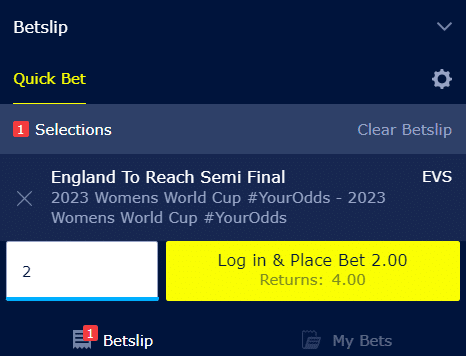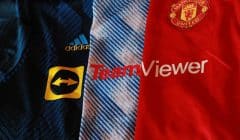What Does Evens Mean in Betting? A Guide for UK Punters
The odds in betting represent the chances of something happening – usually a team or competitor. A team priced at 2/1 is thought to have more chance than a team priced at 100/1. But what about Evens? How does that price work when it comes to betting? In simple terms “evens” means that a bet has an equal chance of happening. But there’s more to it, and this page will fully explain what does Evens mean in betting.
After you have digested the information that’s presented here, you will understand what does Evens mean in betting terms, and whether it can help you become a more successful sports bettor.
What Does Evens Mean in Betting Terms?
When it comes to betting odds, there are three types – odds against, odds on, and Evens.
- Odds Against – the probability of something happening is less likely than the probability of it not happening
- Odds On – the probability of something happening is more likely than the probability of it not happening
- Evens – the probability of something happening is equal to the probability of it not happening
Away from sport, the most common ‘bet’ placed at Evens is the flip of a coin. A coin has two sides, so the side on which it lands in terms of probability is a 50:50 split. If you choose ‘heads’ you have just as much chance of being right as you have of being wrong. The same goes (almost) for some bets in roulette – red/black, odd/even or high/low (we say ‘almost’ because roulette wheels have that pesky green ‘0’, and a ’00’ if you, for some reason, play American roulette).
Therefore, for any event where the chances of a result are exactly 50:50, the odds are Evens.
What Does Evens Mean in Betting Odds?
The use of Evens in betting odds is a little less straightforward. For example, you might see that the odds offered on a team winning a football match is Evens. But, how can that be? There are three outcomes to a football match – home win, away win and draw. How can the odds be Evens if there are three possible outcomes?

The same goes for horse racing – how can be a horse be priced at Evens where there are seven horses in a race?
Rest assured, there is a simple explanation. When it comes to Evens in betting odds, the price represents the probability of the associated outcome. In our football example, maybe the bookies think that there is a 50 percent chance of a home win, a 30 percent chance of a draw, and a 20 percent of an away win. When totalled, that’s the 100 percent fully covered – it’s just that it is thought a home win is as likely as a draw and away win added together.
Therefore you know that if you see a competitor priced at Evens, the bookies think the chances of them winning are exactly the same of them not winning, no matter the other factors that need to be taken into consideration.
What Does Evens Mean in Betting in Different Odds Representations?
There are three main odds representations used in the UK – fractional, decimal and American. Here we take a look at what is Evens in betting odds for each of them.
The term ‘Evens’ is wholly associated with fractional odds. With fractional odds, odds are written as fractions i.e. 3/5, 9/4, 5/1 and so on. The fractional price of Evens is actually 1/1, but instead of writing 1/1, traditionally bookmakers have always used the word ‘Evens’ instead.
When it comes to decimal odds, the word ‘Evens’ is not used. Instead, ‘Evens’ is represented as 2.0. Decimal odds less than two represent odds on, and decimals odds greater than two represent odds against.
In American odds, Evens is indicated as +100. It could just as well be represented as -100, but Americans have chosen +100 as ‘their’ Evens.
Calculating Winnings and Returns with Evens Odds
Working out winnings with Evens odds could not be simpler. If you put £1 on at Evens and you win, you win £1. If you put £10 on at Evens you win £10, and so on. You may then ask, what is the point of betting at Evens if I just win what I wager? The answer is of course for a winning bet you get your stake back. A £1 bet will win you £1 and you’ll get £1 back, meaning a £2 return, and so on.
With decimal odds you always multiply your stake by the odds in order to calculate your returns (not winnings). So, with Evens odds of 2.00, a £1 bet returns (1 x 2 =) £2.
American odds will see you add your stake on. A £1 bet at +100 wins £1 (1 x 100/100). When you add your stake back on you get £2.
Don’t forget that if you ever struggle with calculating winnings, we can offer a range of useful bet calculators for all manner of wagers.
Calculating Probabilities from Evens Odds
Working out probabilities (the implied chance of an event being the result) is a lot easier with decimal odds than fractional odds, as all you need to do is divide 100 by the odds. In our Evens example, 100 / 2.00 is 50, so that’s a 50 percent chance as described throughout this article.
With fractional odds it’s a little more difficult. Before you make the calculation you will need to convert the fraction to a decimal. After that you add 1 and divided 100 by the results. So, for Evens that is 1 / 1 = 1, add 1 to get 2, then divide 100 by 2 to get that 50 percent chance.
Converting from American odds is even more complicated, but it can be done. If the odds are negative, divide 100 by them, add 1, and then divide 100 by the result. If they are positive, divide them by 100, add 1, then divide 100 by the result. This means that with Evens odds of +100, it’s 100 / 100 = 1, then add 1 to get 2, then divided 100 by 2 and there’s that 50 percent chance again. You’ll notice that the result is exactly the same if Evens in American odds was represented by -100.
Are Evens Odds Worth Betting On?
The answer to that question is both yes and no. Online bookmakers seldom screw up with their odds, so if you see a selection priced at Evens, then you can bet (literally) that the selection has a 50 percent chance of winning, and a 50 percent chance of not winning.
The attractiveness of the odds depends upon the number of alternative selections. For example, if a tennis player is priced at Evens, then it’s really just a flip of the coin bet. You may want to check out the odds of the opponent as they are likely to be odds-on. If they are significantly odds-on, then you probably want to give the Evens-priced selection a miss.
You may be asking the question here, if one player in a tennis match is Evens, then surely the other player is Evens too as there can only be one winner from two? This is true, but online betting sites adjust their odds slightly to add ‘the juice’. This adjustment is what keeps them profitable. If the site took in £10,000 on one player at Evens, and £8,000 on the other at Evens then if the first player won they’d have to pay out £10,000 while taking in £8,000 resulting in a £2,000 loss. Odds are adjusted to make such an occurrence less likely to happen.
If a selection in a horse race is priced at Evens then that is a different matter. Such odds mean that the horse is thought just as likely to win than any other horse, no matter which one. This makes them a significant favourite, and worthy of at least an each way bet.
It’s worth noting that most professional gamblers make their living by backing selections that are at Evens at the minimum, and preferably at odds-on, risking only small stakes. This is the steady approach favoured by many, but is hardly glamorous. You may wish to risk larger stakes (but not too large) on selections at Evens.
Where to Wager at Evens in the UK
With an understanding of what does Evens mean in betting terms comes an understanding that all online bookmakers in the UK will offer prices for selections, events and markets at Evens, although prices are always likely to fluctuate.
Have a look at our roundup of the UKGC-licensed betting sites we think you should consider as your wagering portal of choice.
Wrapping Up
So, you should know now what does Evens mean in betting, and what does Evens mean in betting odds. The answer to what is Evens in betting is a simple one – it’s where a selection is thought to be as likely to win as not, and if you bet at Evens you will win your stake, with your stake returned to you.
Now you understand what’s Evens in betting you’ll be able to back selections priced at Evens with the understanding of your chances of a successful bet, and your winnings should your bet being a winning one!







